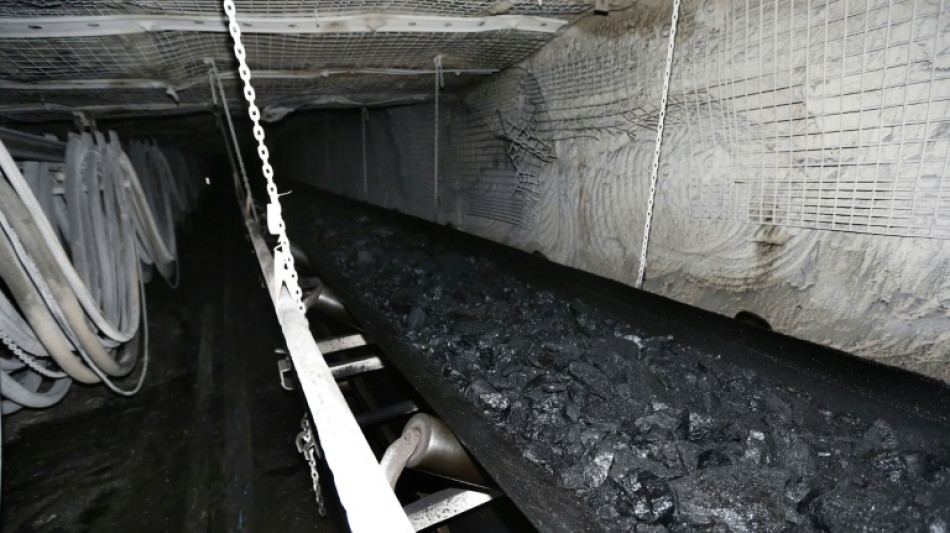

US plans to end leasing in its largest coal-producing region
President Joe Biden's government on Thursday announced a plan to end coal leases in the Powder River Basin, the nation's largest coal-producing region, drawing condemnation from the mining sector and praise from environmentalists.
It comes as the world's second largest economy continues its shift away from coal, the most carbon-intensive fossil fuel, which has seen its output decline by more than 25 percent since 2017 as it struggles to compete with lower cost natural gas and with renewable energy.
Biden has also targeted coal power plants with tough new rules requiring them to almost eliminate all their carbon dioxide output in the 2030s using carbon capture technology or shut down altogether.
The Group of Seven countries last month likewise set a time limit for phasing out coal-fired power plants in the middle of the next decade.
The proposed amendment to the Buffalo Field Office's land use plan was made without fanfare in a statement from the Bureau of Land Management (BLM), kicking off a 30-day protest period, with a final order due later.
It won't affect current coal leases in the region, which spans southeast Montana and northeast Wyoming.
The statement noted the Powder River Basin coal industry has been in decline since 2008.
Still, Rich Nolan, president and CEO of the National Mining Association, called the plan "outrageous," adding it "damages American energy security and affordability and is a severe economic blow to mining states and communities."
But the move was celebrated by green groups. Earthjustice's Drew Caputo hailed it as "a monumental decision that will save lives, safeguard our environment, and significantly cut carbon emissions in the United States."
"For years, conservation groups have litigated to get to this point -- arguing that the federal government cannot simply lease away our public lands to coal companies while ignoring the impacts to public health," he added.
Democratic incumbent Biden is facing a tough reelection against presumptive Republican nominee Donald Trump in November, with climate action seen as key to galvanizing youth and progressive voters.
A victory for climate change skeptic Trump would all but assure a wholesale reversal of green policies, from unfreezing permits on new liquefied natural gas exports to reversing restrictions on drilling in the Alaskan Arctic.
Ch.Schaack--LiLuX



